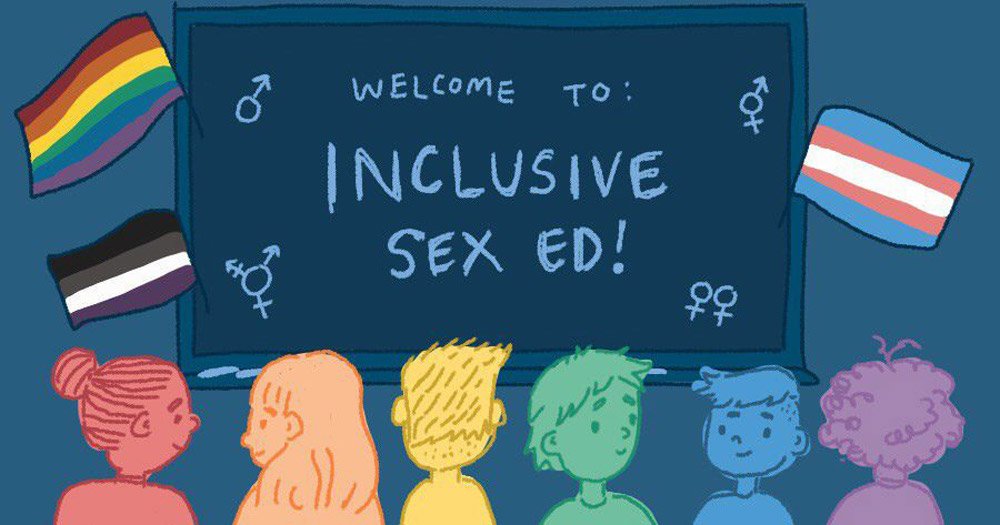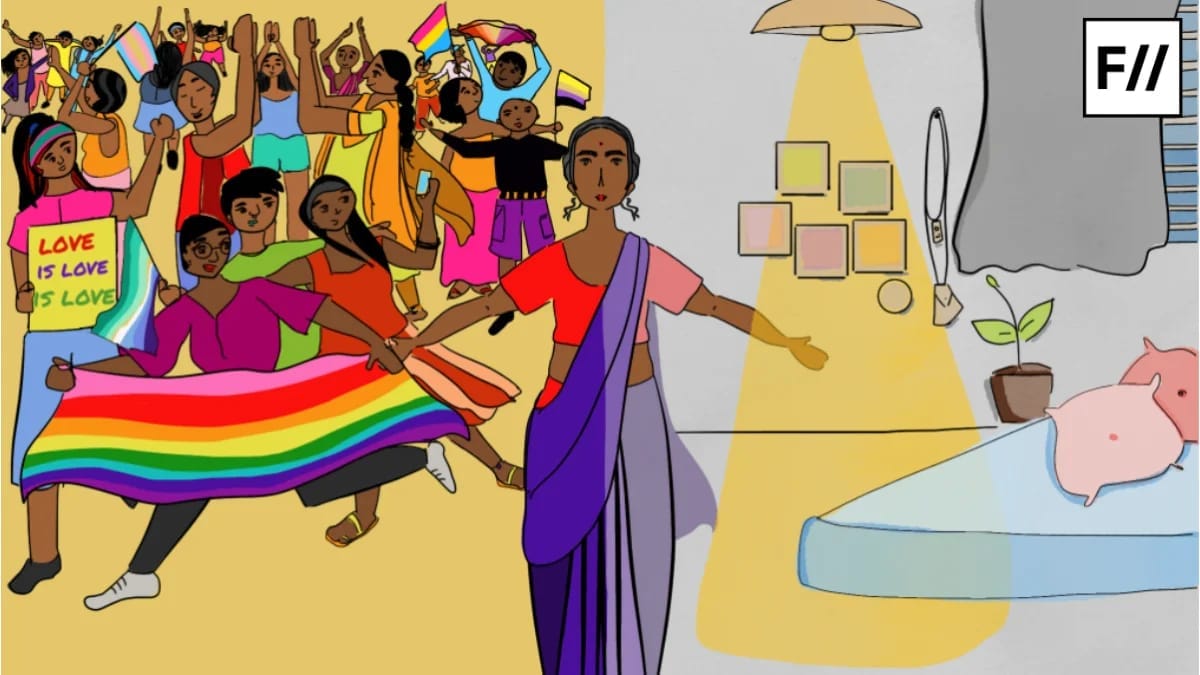Posted by Oishee Roy
Sex education in a country like India is almost nonexistent. And when it does exist, it is full of gender biases and stereotypes which lead to misconceptions in the minds of teenagers.
The queer community, which does not follow socially sanctioned identities, receives the worst backlash from the society. The sheer ignorance on the part of the government, as well as the society, makes them suffer the worst adversities. The education system is the pillar of the future and it needs to be strong and resilient – not only in terms of economy and politics – but also in terms of creating a society that is inclusive of everyone regardless of their gender identity and sexual orientation. The most viable and effective tool which can be used to sensitise students as well as faculty is the introduction of queer inclusive Comprehensive Sexuality Education.
Comprehensive Sexuality Education (CSE), according to UNESCO is defined as, “a curriculum-based process of teaching and learning about the cognitive, emotional, physical and social aspects of sexuality. It aims to equip children and young people with knowledge, skills, attitudes and values that will empower them to realize their health, well-being and dignity; develop respectful social and sexual relationships; consider how their choices affect their own well-being and that of others; and understand and ensure the protection of their rights throughout their lives.”
Why CSE is important
Talking about sexuality is considered a taboo, but as children hit puberty, they have legitimate questions about their changing bodies. They deserve reliable and factually correct answers to these questions. The significance of such answers become even more crucial in cases of children belonging to the queer community as their sexual needs and gender identity are at odds with what the society defines as the norm.
A well tailored, factually correct and enriching sexuality course in the curriculum would help all children, regardless of their sexual orientation and gender identity, to understand sexuality, gender roles, inclusion, reproductive health and wellbeing in a positive light. It will make them take care of their physical and mental well-being as well as those of others around them. The Adolescence Education Program does exist in India’s education system, but it has been unsuccessful due to the stigma around discussing sexual and reproductive health.
CSE is even more crucial for queer children as their sexual needs & gender identity are at odds with what society defines as the norm.
CSE will make a better impact with the inclusion of teachers and parents, as students instinctively look upon them for approval. Adults who are aware of these questions complement and facilitate this kind of learning. The first step towards ensuring the positive support from teachers and parents is by holding separate sessions with them, making them understand the need of CSE and why it is important for a person’s well being. It will help them become more understanding of their children/students’ sexual choices and gender expressions, thus promoting a better social and safe environment for the children.
The presence of queer inclusive sexuality education would be a major win for the queer community as it would lead to a safer place for them to express themselves without getting moral policed or shamed for their identities.
How to implement CSE?
Having said that, how can CSE be implemented in a country where textbooks are used for political agendas? One way is to invite NGOs and organizations which specialise in presenting CSE to students. Secondly, a petition can be filed for the inclusion of CSE as an important part of the curriculum. Thirdly, teachers can also hold discussions to break the ice around the issue.
International Federation of Medical Student’ Associations (IFMSA) conducted a CSE workshop on two groups of students. The first age group consisted of children from 11-13 years of age and the second group had children of the age group 14-15. The group dealt with the topics of safe and unsafe touch, pubertal changes and intercourse. The second group dealt with pubertal changes, anatomy, intercourse, consent, contraception and sexuality. The impact of the workshop was evaluated by a pre and post event questionnaire presented to the students. In collaboration with Talking About Reproductive and Sexual Health Issues (TARSHI), campaigns are being conducted with basic online courses as a way to impart correct information to students across the country. It takes into account every person regardless of their sexual orientation.
This is an efficient way, but time is running out and we, as responsible and aware citizens, need to make sure that the society is inclusive of everyone’s needs without endangering anyone’s physical and mental health. Having discussions with peers and supporting such LGBTQ+ organisations via different methods can be helpful in spreading awareness.
Also read: Why Do We Need CSE In Our Classrooms? An Educator’s Perspective | #WhyCSE
Oishee is a part-time word weaver, part-time reader and a feminist. Follow her on Instagram.
Featured Image Source: GCN
About the author(s)
Guest Writers are writers who occasionally write on FII.




